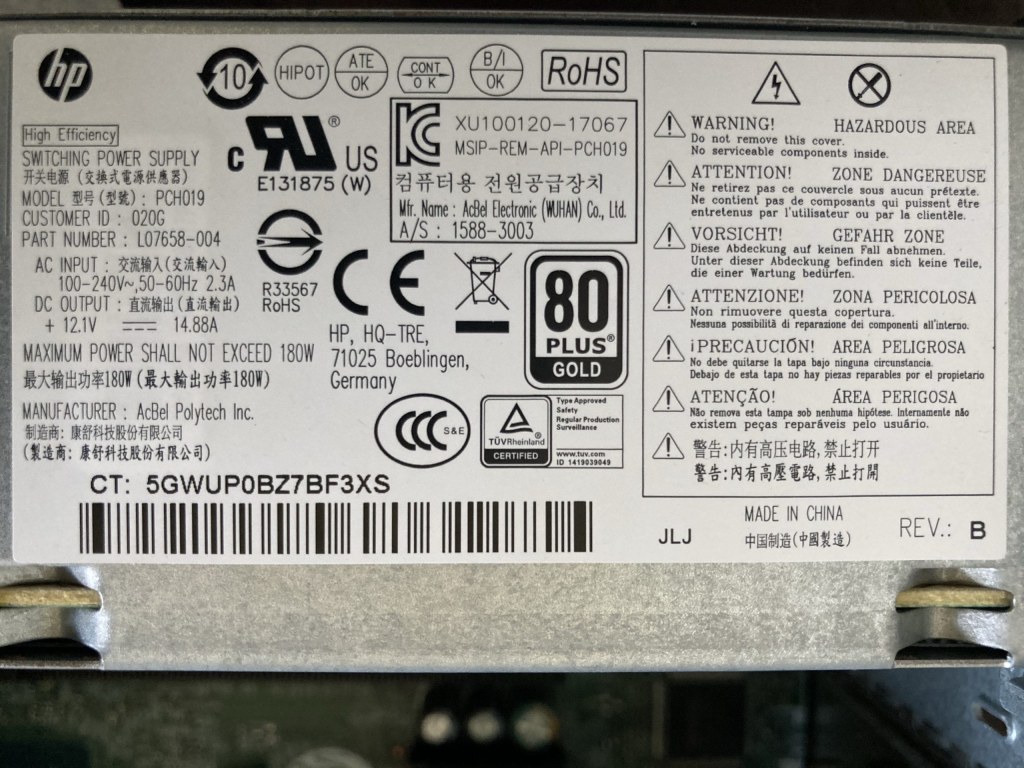Desktop PC Wattage: Understanding Power Consumption for Optimal Performance
Introduction
Dear Readers,
Welcome to our comprehensive guide on desktop PC wattage. In this article, we will delve into the world of power consumption for desktop computers. Understanding the wattage requirements of your PC is crucial for ensuring optimal performance and efficiency. Whether you are a casual user, a gamer, or a professional, this guide will provide you with all the necessary information to make informed decisions. So, let’s dive right in!
What is Desktop PC Wattage? 🔌

Image Source: kompulsa.com
Desktop PC wattage refers to the amount of electrical power consumed by a computer system. It is measured in watts and determines the overall energy requirements of your PC. Understanding the wattage of your desktop is essential for selecting the right power supply unit (PSU) and managing power consumption effectively.
Who Should Be Concerned About Desktop PC Wattage? 🖥️
Anyone who uses a desktop computer should be aware of the wattage requirements. Whether you use your PC for basic tasks like web browsing and word processing or resource-intensive activities like gaming or video editing, understanding wattage helps optimize performance and prevent power-related issues.
When to Consider Desktop PC Wattage? ⏰
Considering desktop PC wattage becomes necessary when building a new system or upgrading an existing one. It is also crucial when experiencing power-related problems like frequent system shutdowns or unstable performance. Additionally, if you are conscious about energy consumption and want to lower your electricity bills, understanding wattage can help in making informed choices.
Where to Find Desktop PC Wattage Information? 🌐
The desktop PC wattage information is typically available in the specifications provided by manufacturers for each component. You can find wattage details on the product labels, official websites, or user manuals. Additionally, there are online resources and PSU calculators that can estimate the wattage requirements based on your PC configuration.
Why is Desktop PC Wattage Important? ❓
Desktop PC wattage is crucial for several reasons. Firstly, it ensures the stability and reliability of your system. If the power supply is inadequate, it can lead to system crashes, data loss, and hardware damage. Secondly, understanding wattage helps in selecting the right PSU, ensuring compatibility with other components. Lastly, knowing the wattage enables efficient power management, reducing energy consumption and environmental impact.
How to Determine the Desktop PC Wattage for Your System? 📏
Determining the desktop PC wattage for your system involves considering the power requirements of individual components such as the CPU, GPU, RAM, storage devices, and peripherals. These components have different wattage ratings, which need to be added up to get the total power consumption. PSU calculators are available online to simplify this process by analyzing your PC configuration and providing an estimated wattage requirement.
Advantages and Disadvantages of Desktop PC Wattage
Advantages:
Optimal Performance: Understanding and meeting the wattage requirements ensures that your PC operates at its best.
Component Compatibility: Proper wattage consideration allows for the selection of compatible components, preventing compatibility issues.
Energy Efficiency: Knowledge of wattage enables efficient power management, reducing electricity bills and environmental impact.
System Stability: Adequate power supply prevents system crashes and hardware damage.
Future-Proofing: Considering wattage during system building or upgrades ensures the ability to accommodate future component additions or upgrades.
Disadvantages:
Cost: Higher wattage requirements may necessitate the purchase of a more expensive power supply unit.
Overkill: Overestimating wattage requirements can lead to unnecessary expenditures and inefficient power consumption.
Complexity: Calculating wattage requirements can be challenging, especially for users with limited technical knowledge.
Upgrade Limitations: Insufficient wattage limits the ability to add power-hungry components or upgrade existing ones.
Compatibility Constraints: Inadequate power supply may limit the selection of high-performance components.
Frequently Asked Questions (FAQs) 💡
1. What happens if my PC wattage exceeds the power supply capacity?
If your PC wattage exceeds the power supply capacity, it can lead to system instability, random shutdowns, and even damage to the power supply unit and other components.
2. Can I use a lower wattage power supply for my PC?
Using a lower wattage power supply can result in insufficient power delivery, leading to system crashes, poor performance, and potential hardware damage. It is essential to match the power supply wattage with your PC’s requirements.
3. Can a higher wattage power supply improve performance?
Using a higher wattage power supply does not directly improve performance. It only ensures that the system has a stable power supply and can accommodate power-hungry components effectively.
4. How can I reduce my PC’s power consumption?
To reduce your PC’s power consumption, you can opt for energy-efficient components, enable power-saving features in the operating system, and monitor background processes to identify power-hungry applications.
5. Does overclocking increase PC wattage?
Yes, overclocking increases PC wattage as it requires higher voltage and power to achieve higher clock speeds. It is essential to consider the additional wattage requirements when overclocking your system.
Conclusion: Make Informed Choices for Optimal Performance
Understanding desktop PC wattage is crucial for ensuring optimal performance, stability, and energy efficiency. By considering the wattage requirements of your components and selecting the right power supply unit, you can build a system that meets your needs while minimizing power-related issues. Remember to calculate wattage accurately, weigh the advantages and disadvantages, and make informed choices for a reliable and efficient desktop PC.
Thank you for reading!
Final Remarks
Disclaimer: The information provided in this article is for educational purposes only. The wattage requirements mentioned may vary depending on specific component models, configurations, and usage scenarios. It is recommended to refer to the manufacturer’s specifications and consult with experts when building or upgrading your desktop PC.